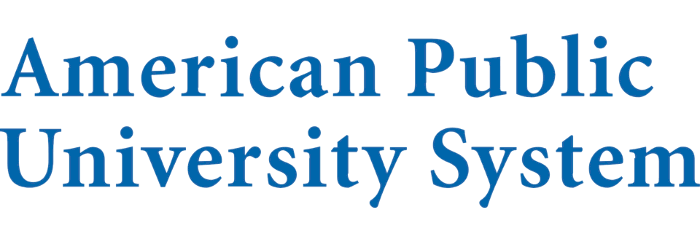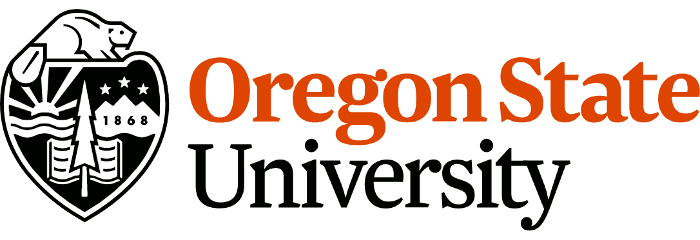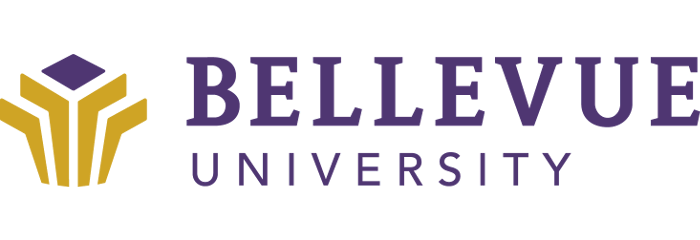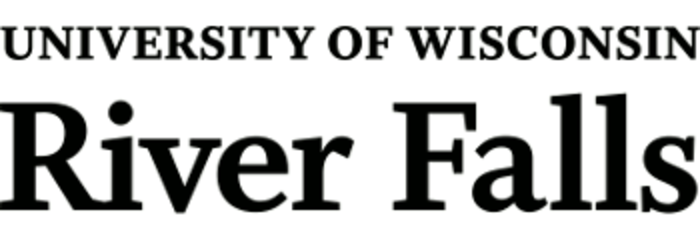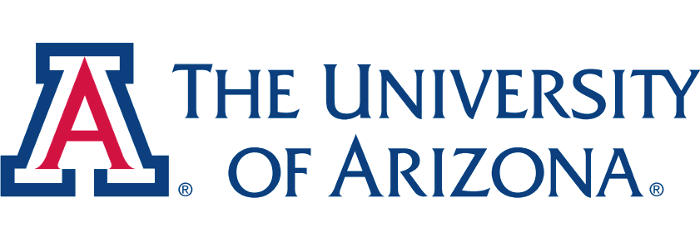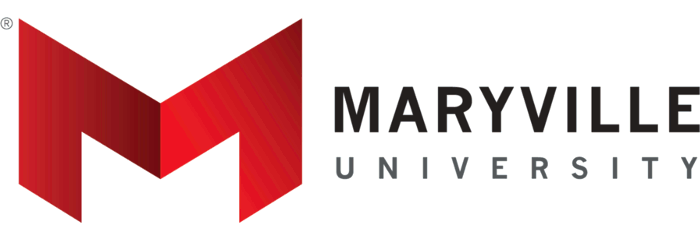
An affordable online bachelor's in environmental science provides an interdisciplinary approach to studying ecosystems and tackling environmental challenges. You’ll explore biology, chemistry, and ecology while addressing issues like climate change and sustainability. Flexible online learning includes real-world applications, preparing you for careers in conservation, consulting, and policy-making.
Key Takeaways:
- Northwest Indian College is #1 in affordability, with tuition at $6,600 for its online Bachelor of Science in Native Environmental Science.
- Southern New Hampshire University Online, standing at #5 overall for low tuition, leads in online popularity, with over 135,000 distance learners.
- The University of Wisconsin boasts a perfect recommendation rate of 100%.
To find the most affordable online environmental science bachelor's programs, we manually confirm tuition rates. Every school listed is accredited and offers upfront cost details. For details, please visit our methodology page.
2025 Most Affordable Online Environmental Science Degrees
| Rank | School | Location | Annual Tuition |
|---|---|---|---|
| Northwest Indian College | Bellingham (WA) | $6,600 | |
| Florida Gateway College | Lake City (FL) | $7,933 | |
| Columbia Southern University | Orange Beach (AL) | $8,100 | |
| University of West Alabama | Livingston (AL) | $9,750 | |
| Southern New Hampshire University Online | Manchester (NH) | $9,900 | |
| American Public University System | Charles Town (WV) | $10,500 | |
| Purdue Global | Indianapolis (IN) | $11,130 | |
| Indiana University - South Bend | South Bend (IN) | $11,343 | |
| University of Wisconsin - Superior | Superior (WI) | $11,700 | |
| Liberty University | Lynchburg (VA) | $11,700 | |
| Oregon State University | Corvallis (OR) | $11,760 | |
| University of Phoenix | Nationwide | $11,940 | |
| Wilmington University | New Castle (DE) | $12,570 | |
| Virginia Wesleyan University | Norfolk (VA) | $12,840 | |
| St. Petersburg College | Clearwater (FL) | $13,224 | |
| Bellevue University | Bellevue (NE) | $13,470 | |
| Unity Environmental University | Unity (ME) | $14,100 | |
| University of Maryland Global Campus | Adelphi (MD) | $14,970 | |
| University of Wisconsin - River Falls | River Falls (WI) | $15,583 | |
| University of Arizona | Tucson (AZ) (and 1 other) | $15,750 | |
| Maryville University | St. Louis (MO) | $16,200 | |
| Florida International University | Miami (FL) | $16,997 | |
| Arizona State University, Online | Tempe (AZ) (and 4 others) | $17,220 | |
| Florida Atlantic University | Boca Raton (FL) | $19,172 | |
| Everglades University | Sarasota (FL) (and 4 others) | $26,100 |
ADVERTISEMENT
Online Environmental Science Bachelor's Degrees You May Be Interested In
Overview of Online Environmental Science Bachelor's Degrees
An environmental science bachelor's degree is ideal for those who are fascinated by conservation and climate change and want to learn more about waste management, disaster preparedness, and environmental law. Undergraduate programs in this field are designed to provide an advanced understanding of the relationship between human activity and the environment.
Online degrees in environmental science help prepare you for a career dedicated to making positive change. Some of the technical skills you're likely to develop include data analysis and modeling, laboratory techniques, proficiency in GIS (geographic information systems), and environmental impact assessments. Additionally, you'll foster soft skills like critical thinking, project management, and effective communication.
As you progress through an online program, you'll find that your projects and assignments often revolve around real-world challenges. You may be asked to review case studies, conduct field investigations, write research papers, and provide policy analysis.
Common Courses
Most online bachelor's programs in environmental science require the completion of 120-124 credit hours. In addition to core courses, you'll have an array of related electives to choose from, allowing you to tailor your program to your interests and career goals. Some programs include an internship or a capstone project.
Below are some of the core courses often found in an environmental science program:
Climate Change
This course explores the science of climate change, its causes, and its potential impact on the planet's ecosystems. Coursework is likely to include the economic, political, and social influences on climate change.
Conservation Biology
Students learn the principles of conserving biological diversity, including the ecological theories behind conservation efforts. Real-world examples and case studies help students understand the impact of these actions.
Environmental Chemistry
This course addresses the chemical processes that occur in natural and polluted environments. Online students may be required to purchase lab kits or assemble lab equipment to complete assignments.
Environmental Policy and Law
This course provides an understanding of the legal and policy aspects of environmental issues, including legislative processes and litigation tactics.
GIS and Remote Sensing
In this advanced course, students gain skills in geospatial technology, learning to use GIS and remote sensing tools to analyze and solve environmental problems.
Curious to explore similar online degrees? Check out our list of the best online biology bachelor's degrees. There are also the specialities like fire science degrees and health science programs.
Funding an Online Environmental Science Degree
Paying for a college education can seem daunting, but you probably have several sources of funding available to you. Some of the possibilities include savings, income, grants, scholarships, and student loans.
The following list provides you with five additional ideas for reducing your expenses and saving money in college:
- Enroll in an online degree program. Unless the traditional, on-campus experience is something you've always dreamed of, you may want to consider an online program like the most affordable environmental science degrees listed above. Distance education can be more economical because some colleges charge lower tuition rates for online learners. Also, keep in mind that the traditional approach will include hefty fees for room and board or transportation — fees that are eliminated when you study remotely.
- Opt for a public university. Here again, unless there's a particular private institution you've always wanted to attend, consider public schools. Recent data published by the National Center for Education Statistics () indicate that the average tuition and fees for bachelor's degrees at public schools were about one-fourth of the tuition and fees charged at private schools — $9,596 as compared to $34,041.
- Find a cheap place to live. One of the benefits of online college is that you can live anywhere while attending school. By moving to a more economical town or city, you may be able to minimize your rent, food, and other living expenses.
- Fulfill your general education requirements at an affordable community college. Generally speaking, in the first two years of a bachelor's program, you'll take about 20 general education courses, such as literature, algebra, and psychology. You could save thousands in tuition fees by taking these courses at an online community college and then transferring to a four-year university. According to the NCES, community colleges charge an average annual tuition rate of $3,564. Many of these schools also offer online classes for your convenience.
- Earn extra income by working. Holding a part-time or full-time job while attending college has both advantages and drawbacks. However, every dollar that you can put towards paying for your degree may help you avoid student loan debt.
Financial Aid
Another way you might be able to economize on an environmental science bachelor's degree is to apply for financial aid. The funds that come from the federal and state governments and from the schools themselves are usually reserved for students with financial need, but all on-campus and online students enrolled in accredited bachelor's programs can apply for aid.
There are several types of aid available, and some are more desirable than others. Scholarships and grants are preferred because they don't have to be repaid.
Federal and private student loans are less appealing because they have to be paid back with interest. But, depending on your circumstances, a student loan may be your best option. Before accepting a loan, use a student loan repayment calculator to calculate the total cost of the loan plus the interest.
School-sponsored and private scholarships are also available, and they are often awarded based on factors other than financial need. Awards may be granted based on academic merit, career goals, community service, or family heritage.
While you'll need to submit individual applications for private scholarships, you can apply for all other types of financial aid by submitting just one form — the Free Application for Federal Student Aid (FAFSA). Later, if you're approved for aid, your school will send you a financial aid offer.
What Can You Do With an Online Environmental Science Degree?
An online bachelor's in environmental science is a surprisingly versatile degree that can serve as the starting point for many different careers in this field.
One of the most common occupations for graduates with this degree is environmental scientist. These professionals analyze environmental problems, assess the impact of human activity on nature, and develop possible solutions. Within this field, there are also several types of specialists, such as environmental health and safety specialists, industrial ecologists, and climate change analysts. According to the Bureau of Labor Statistics (BLS), this category of scientists earns a median annual salary of , with the highest 10% of earners making more than $130,770 per year. Usually, the highest earners work in the federal government.
With some experience or possibly additional education, you may also qualify for related science-oriented occupations with respectable salaries. Some of these options include conservation scientist (), hydrologist (), and geoscientist ().
Further Education and Certification
If you're interested in specializing in a particular aspect of environmental science, you may want to pursue a master's degree. Programs are available that emphasize chemistry, biology, geology, sustainability, resource management, and more. The leadership skills and intensive knowledge you acquire may qualify you for higher-paying positions. To further your interest in original research, you can also consider earning a doctorate.
Another way to advance your career is to earn professional certification. Several organizations offer certification, such as the National Registry of Environmental Professions (), the Academy of Board Certified Environmental Professionals (), and the Association of Climate Change Officers ().
Thinking about earning a master's degree? You may be interested in the best master's programs in environmental science and the most affordable master's programs in environmental science.
FAQs About Online Environmental Science Degrees
How Do I Choose a Bachelor's in Environmental Science?
Selecting the right environmental science bachelor's degree program for your needs can be challenging. You've got many factors to consider, such as online format, available concentrations, notable faculty, financial support, and online student services. Some of these criteria may be more important to you than others, so assess them based on your personal priorities.
One thing you won't want to compromise on, however, is accreditation. Enrollment in an accredited university is required if you're going to receive financial aid, transfer to another school, or apply for graduate school. You may also want to look for schools with programmatic accreditation from the National Environmental Health, Science and Protection Accreditation Council ().
How Long Does It Take to Get an Environmental Science Degree?
Typically, a bachelor's degree in environmental science requires 120-124 credit hours, which can be completed in four to five years of full-time study. However, many online programs offer flexible part-time options, which can extend the length of the program.
Is an Environmental Science Degree Hard?
The difficulty of an online bachelor's program in environmental science can vary greatly depending on your background and natural abilities. The courses are diverse, ranging from advanced math and laboratory sciences to business and social sciences. If you have a strong interest in the field, you'll probably find the coursework rewarding and manageable.
Is an Environmental Science Degree Worth The Cost?
Determining whether it will be worth it to pursue an online bachelor's degree in environmental science should be based on your personal priorities and goals.
If you want to look at the investment in financial terms, earning an environmental science bachelor's degree may give you a fairly high return on your investment. Environmental scientists earn a median annual income of about or about $36.77 per hour, and there are other career options that require only a bachelor's degree that feature even higher annual salaries.
Perhaps more important, a career in environmental science is likely to be personally fulfilling. Knowing that you're contributing to positive changes that may affect the planet and all of its inhabitants now and into the future could be incredibly rewarding.
Student Reviews of Online Environmental Science Programs
I love how convenient the classes are for a busy parent. The instructors are very understanding and are always willing to assist you in any way possible. The courses are interesting and have a similar meaning to a one on one session. Even though your discussions are peer based, which allows you to still engage with other students and even the educators. The instructor is allaying willing to help answer any question.
Review Date: 5/29/2025
Would Recommend: Yes
Helpful for Career: Yes
This school is awesome and they want you to succeed in your studies. When I first attended university of Phoenix I was never but it has been a great reward. I love my instructors they are always there to help in anyway they can. I recommend this school for online learning.
Review Date: 7/30/2025
Would Recommend: Yes
Helpful for Career: Yes
I love how convenient the classes are for a busy parent. The instructors are very understanding and are always willing to assist you in any way possible. The courses are interesting and have a similar meaning to a one on one session. Even though your discussions are peer based, which allows you to still engage with other students and even the educators. The instructor is allaying willing to help answer any question.
Review Date: 5/29/2025
Would Recommend: Yes
Helpful for Career: Yes
I am a current student of TESU. I am 3/4 the way to my BA in Environmental Studies. My experiences with this school have been for the most part positive. I am a veteran and their liaison office was very helpful in getting my credits transferred and helping me get started. I have had mentors that were great and very engaged. I have also had mentors that wouldn't respond to emails and had little to no interaction with the class. Mentoring online or non-traditional classes is a part time job that professors... Read More
Review Date: 8/9/2018
Would Recommend: Yes
Helpful for Career: No
This school will not properly articulate transcripts leading to never ending registration issues. Advising is a waste of time, because they will not follow through with tasks that need to be accomplished for a student to determine exactly what course work is required of them. If you ask any status update questions, no one at the university will even respond to your emails. If you file a complaint, the resolution you receive is only a "status" update on the original problems and never an actual resolution.... Read More
Review Date: 5/23/2019
Would Recommend: Yes
Helpful for Career: No
Everyone has been very helpful and the classes are very writing and essay orientated to insure you are really grasping the assignments and information. There are still tests and quizzes and they are open book. You take one class at a time making it less confusing. Though there are options to take more classes at once to get your degree quicker.
Review Date: 4/26/2015
Would Recommend: Yes
Helpful for Career: No
My only issue is right now with the labs given for Environmental Science degrees. The kit used has materials which need to be washed, saved, etc, and the time it takes to do the experiment is not accurate from reading the instructions given. I just want to give a heads up to anyone taking lab courses online, which you have to do at home, to plan ahead like way ahead and plan to reuse all of the materials. I am barely keeping up and I thought I planned ahead and I had the heads up from other people.... Read More
Review Date: 3/30/2018
Would Recommend: Yes
Helpful for Career: No
I would say APUS is a mediocre school at best. I had several issues while attending that makes me wish I went somewhere else. I know several people have commented on the financial aid at APUS, but luckily I didn't have the same issues. I do think they nickle and dime their students, especially as you get closer to graduation. It costs $100 to graduate, and $20 for offical paper transcripts to be sent. Of the two years I spent at APUS to complete my degree, I had only two or three classes that I really... Read More
Review Date: 11/12/2019
Would Recommend: No
Helpful for Career: No
I do have to say I was very surprised at the comments that former students have written about Ashford University. I had a few issues with the financial aid department, but nothing so significant that someone did not fix. As for the coursework, it is not easy (I was pretty sure this was college though). You have to be dedicated, yes they want quality work, and want it on time (Again, it is college). I would be afraid if they did not. Every one of the professors I had, had Ph.D.'s. I might not be a... Read More
Review Date: 10/30/2016
Would Recommend: Yes
Helpful for Career: No
Not sure how I feel about SNHU. Getting a degree in Geoscience and SNHU was one of only a couple schools that offered it on line. Just finishing my second online term and I'm a little concerned about the quality of the education. I am also concerned about reputation, how is SNHU viewed by employers, private and government. A bunch of the negative comments have been about dealing with advisors and financial aid; so far I have employer assistance so not concerned with that. My issue is the classes... Read More
Review Date: 5/28/2016
Would Recommend: No
Helpful for Career: No
I attended the University of Maryland University College and graduated in May 2017 with a Bachelor of Science in Environmental Management. The school is very affordable and the online and hybrid classes were very helpful in allowing me to complete my degree while serving in the Active Duty Air Force. The school is designed for students who work full time or work odd schedules.
Review Date: 8/15/2017
Would Recommend: Yes
Helpful for Career: Yes
As I read some of these comments I cannot believe the negativity of some of them. I have been taking classes for a year and a half and it is no walk in the park. You get what you put into it, if you don't study, expect poor grades. I have had no issues with neither my professors or school staff; they have been understanding when "life" becomes complicated. So far, nothing but positivity and good praise for this institution. Manage your time, study and make school a priority or expect to fail. This... Read More
Review Date: 8/28/2017
Would Recommend: Yes
Helpful for Career: No
I have had financial issues non stop since starting. Now they are telling me that I have to owe money to them that they sent back to dept of education from prior semester because they made a mistake and accepted to much money. Now since my financial aid was already 3 months late and I had late payments to pay, they are telling me to use the money I paid off my bills from to pay them back. This school is ridiculous.
Review Date: 12/29/2013
Would Recommend: No
Helpful for Career: No
Ashford is very good at financial services likely because they want your attendance and money (especially GI Bill). I had three amazing instructors during my degree. That's it. The rest could care less if you could coherently explain an idea using proper spelling, punctuation or grammar. A lot of content is superficially covered at a quick pace and is repetitive throughout the degree with very little being expounded on. Many of the instructors in the environmental degree were of a "group think" mentality... Read More
Review Date: 9/11/2017
Would Recommend: No
Helpful for Career: No
American Military University (AMU) is an outstanding option if you are looking for an online college experience. AMU provided me with one of the largest selections of undergraduate and graduate degrees available online. There were numerous electives to go with each degree program, allowing me to choose electives that interested me and aligned with my degree program plan. As a career Soldier in the United State Army, AMU worked with me to adjust course requirements during times that I was deployed... Read More
Review Date: 2/27/2017
Would Recommend: Yes
Helpful for Career: Yes
Felt like I didn't really learn anything useful, basically paid a bunch of money to do a bunch of busy work to get a degree that no one really cares about. I have a job now but it was hard finding one and I know a lot of people who had a really hard time finding one and a lot that are still looking over a year later. Tech used to be fun too but they made a bunch of lame ifc rules and stuff and tailgate rules that make it the lamest school around... its know for all the drinking not because people... Read More
Review Date: 6/17/2019
Would Recommend: No
Helpful for Career: No
The University of Hawaii Maui College is a great school to earn your 2 year or 4 year degrees. I moved to Maui for the Sustainable Science Management B.A.S. program. My degree allows me to follow my passions and find niches in the field of sustainability science that most appeal to me. While in school I enjoyed small class sizes and a wide variety of teaching techniques. Small island settings like Maui are prime locations to study sustainability as the are very isolated from outside resources and... Read More
Review Date: 7/18/2018
Would Recommend: Yes
Helpful for Career: Yes
Amazing and life changing, to say the least. Thank you St. Petersburg College for creating this spark inside of me that allows me to be passionate about what I learn in school. I feel so confident using the skills I've learned to help create the next steps for my career.
Review Date: 11/26/2019
Would Recommend: Yes
Helpful for Career: Yes
I studied at ASU for my undergrad. I enjoyed my experiences and I grew a lot in this time. I am currently pursing my Master's at ASU as well. I have enjoyed the rigor of my program as well as the opportunity to further hone my skill set and professional abilities. ASU is a great university to choose and the professors are dedicated to ensuring your success.
Review Date: 6/24/2017
Would Recommend: Yes
Helpful for Career: No
It is a great school to go to if you wish to attend a college with the price tag of a public school and the class size of a private school. There is a real sense of community between the students and faculty. While there I was able to develop great relationships with not only my classmates, but also many of my professors. The campus is a beautiful place to live and attend classes with a nature preserve and many trails to enjoy. There are several activities on campus to increase the quality of student... Read More
Review Date: 9/1/2015
Would Recommend: Yes
Helpful for Career: Yes






